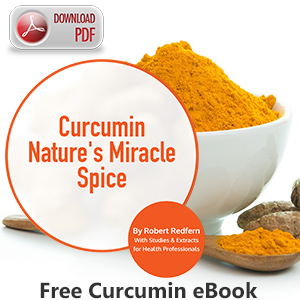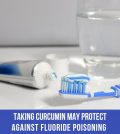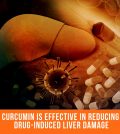Curcumin Treating Eye Disorders
![]() Curcumin is apparently more than your typical kitchen spice. It’s the substance that gives ginger its yellowish colour, and it has been implicated in the treatment of certain eye diseases and conditions. One of those is known as chronic anterior uveitis (CAU), an inflammatory condition of the vascular layer of the eye, particularly the area comprising the iris. In one small study, Curcumin was given orally to 32 chronic anterior uveitis patients who were divided into two groups. The first group received Curcumin alone, whereas the second group received a combination of Curcumin and antitubercular treatment. Amazingly, all of the patients treated with Curcumin alone improved, compared to a response rate of 86% among those receiving the combination therapy. The researchers concluded that Curcumin was just as effective as corticosteroid therapy, the only available standard treatment for chronic anterior uveitis at present, adding that “the lack of side effects with Curcumin is its greatest advantage compared with corticosteroids.”
Curcumin is apparently more than your typical kitchen spice. It’s the substance that gives ginger its yellowish colour, and it has been implicated in the treatment of certain eye diseases and conditions. One of those is known as chronic anterior uveitis (CAU), an inflammatory condition of the vascular layer of the eye, particularly the area comprising the iris. In one small study, Curcumin was given orally to 32 chronic anterior uveitis patients who were divided into two groups. The first group received Curcumin alone, whereas the second group received a combination of Curcumin and antitubercular treatment. Amazingly, all of the patients treated with Curcumin alone improved, compared to a response rate of 86% among those receiving the combination therapy. The researchers concluded that Curcumin was just as effective as corticosteroid therapy, the only available standard treatment for chronic anterior uveitis at present, adding that “the lack of side effects with Curcumin is its greatest advantage compared with corticosteroids.”
Similar research using rats and rabbits found that Curcumin effectively inhibited chemically induced cataract formation, even at very low dietary levels. The same study also found, for the first time, that this type of induced cataract may be accompanied by apoptosis of epithelial cells in the eye and that Curcumin may lessen the apoptotic effect. In one of the earliest studies examining Curcumin as a potential cataract therapy, researchers fed two groups of rats, diets that included corn oil, or a combination of Curcumin and corn oil for 14 days. Afterward, their lenses were removed and examined for the presence of lipid peroxidation. The scientists discovered that “the lenses from Curcumin-treated rats were much more resistant to. induced opacification than were lenses from control animals.”
Awasthi S et al. Curcumin protects against 4-hydroxy-2-trans-nonenal-induced cataract formation in rat lenses. Am J Clin Nutr 1996 Nov;64 (5):761-6.
Lal B et al. Efficacy of curcumin in the management of chronic anterior uveitis. Phytother Res 1999 Jun;13(4):318-22.
Pandya U et al. Dietary curcumin prevents ocular toxicity of naphthalene in rats. Toxicol Lett 2000 Jun 5;115(3):195-204.






